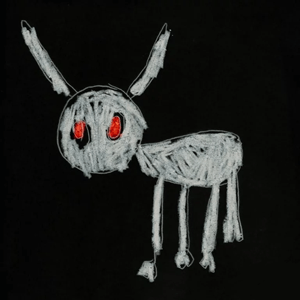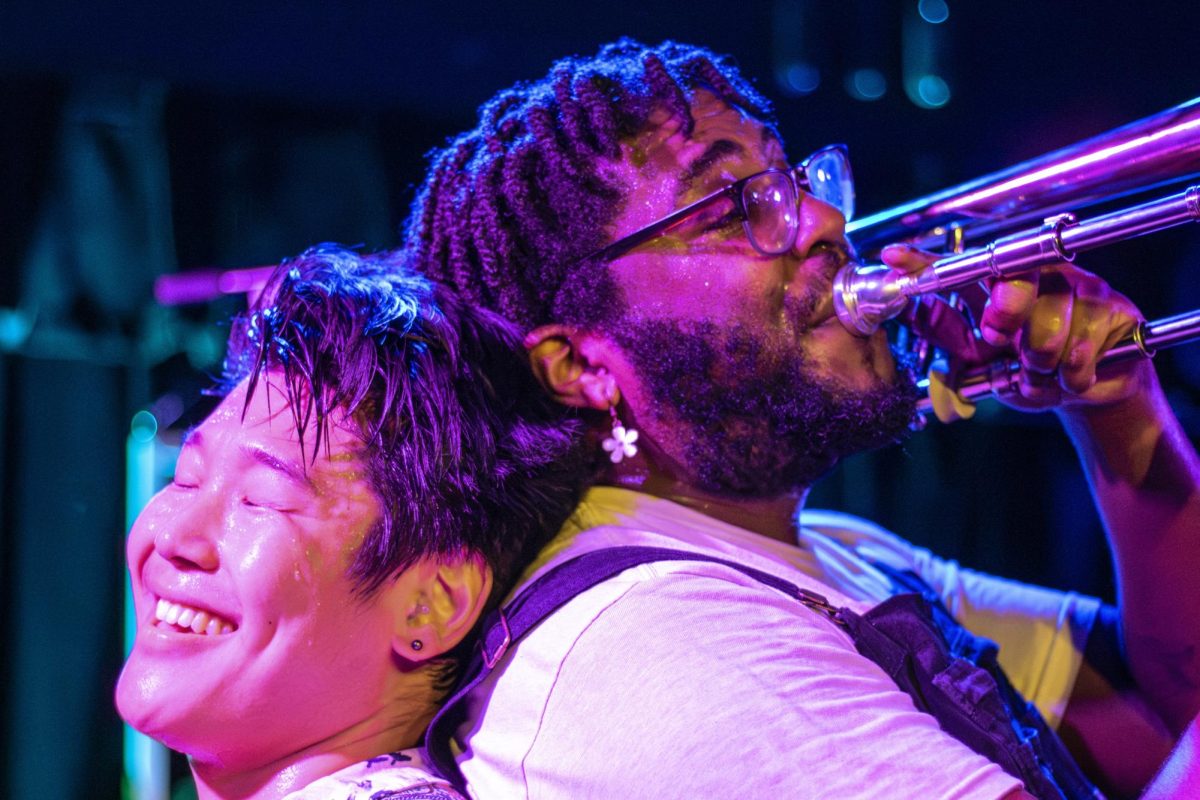
There is something unshakeably familiar about the synthesizer that hums behind “Intern,” the opener of Angel Olsen’s new album, “My Woman.”
Its movements sound excitable and welcoming, like the background music of an advertisement directed at tourists or prospective students. Over its pulse, one can picture bustling streets, plenty of smiling faces and bountiful green space, ending with a message imploring you to come see it all for yourself.
Of course, even a cursory look below the shimmering surface of “Intern” will actually reveal that the creator of this seemingly idyllic environment wants nothing but to leave it. “I am going to fall in love with you some day/I’m gonna fall in love and run away,” Olsen sings, injecting lifetimes of wanderlust into every note and equal amounts of disconcerting sunniness into the song’s plastic, synth-driven background.
“My Woman,” released Sept. 2, lives off of this dichotomy. The music that churns restlessly behind Olsen’s raw songwriting is a misleading frame, painting rose-colored pictures that Olsen never fails to disrupt. Olsen calls Asheville, N.C.—long a crossroads of rock, folk and country–home, and it shows. While the music constantly dips into the inherent warmth of these genres, Olsen openly flouts their boundaries in her words, almost all of which hit like a train.
Musically, “Heart Shaped Face” is a wonderful dash of soul. Like the best of its contemporaries in the genre, each instrument seems to have a perfect sense of time, keeping their statements brief and to the point, before ceding the spotlight back to their conductor.
For Olsen herself, “Heart Shaped Face” is the portrait of a disintegrating relationship, a slow-to-develop storm delivered with awe-inspiring tranquility. “I’ve seen you, changing,” she repeats to open the track, before immediately questioning the song’s subject. “Was it me you were thinking of?/All the time when you thought of me,” “Was it a feeling you thought I could dig up or erase?” she coolly demands.
Before the song’s subject can reclaim lost ground, Olsen ends the interaction with a sweetly delivered, but absolutely brutal kiss-off. “Have whatever love you wanna have/But I can’t be here anymore.”
On “Shut Up Kiss Me,” Olsen is just as blunt and convincing. Over the most bone-simple of countrified garage-punk backing tracks, she turns in perhaps the most convincing revival of glam rock in this millennium. The chorus, anchored on Olsen’s spewing of “shut up, kiss me hold me tight,” virtually makes the verses, and anything else the listener might be focusing on at that moment, irrelevant.
Just as impactful, though, are the times when Olsen seems to lose that effortless cool, her self-assuredness in shattering the listener’s first conceptions of her and the environments that she builds.
Olsen cloaks “Those Were the Days” in memories, oscillating uncertainly between nostalgia and regret. The blissful guitars, drenched in reverb, make the song feel like a dream, whereas Olsen’s painfully vivid self-doubt keeps it anchored in reality.
Olsen opens the track with the question “Do you remember the way that it used to be?”, morosely grasping at the straws of a place, time and feeling that are increasingly fading from her memory. She soon proves to be a bit of an unreliable narrator though, cooing “See how you’re laughing with those you don’t know as well/I hear you saying I’m the one but I wish I could tell.”
Though the resigned waltz playing behind her suggests a perfect memory and a black-and-white divide between the highs and lows of the relationship, the listener is left with those words with the same uneasiness Olsen is writing about.
“My Woman,” and Olsen herself, are remarkable in that way. She takes great pains to build immersive, comfortable worlds for the listener and then takes equal pains to distort and cloud them. In a time when Americana has become tired as a genre, Olsen takes its elements and remakes its sound in her own remarkable image.
Jackson Maxwell can be reached at [email protected].


















